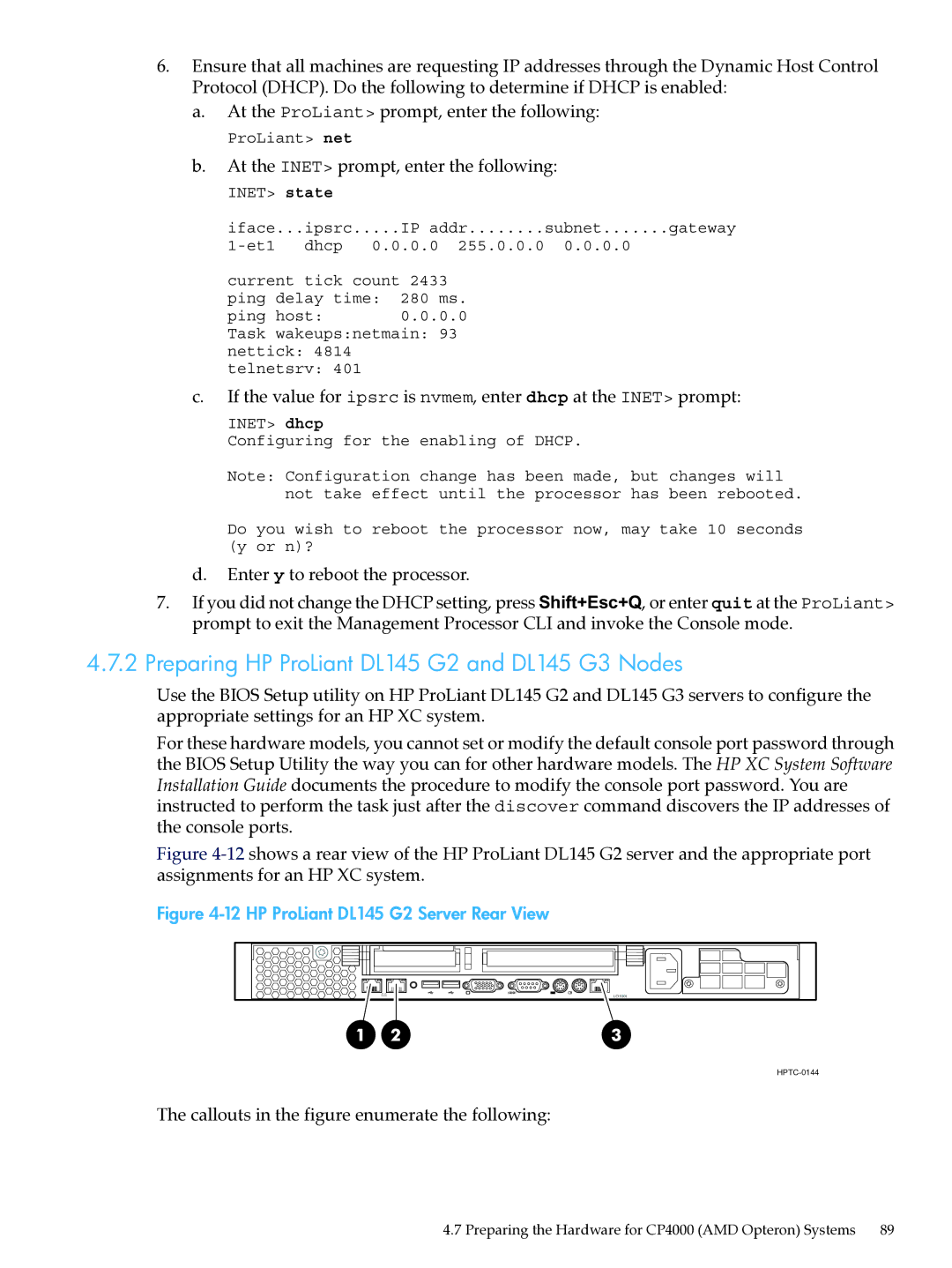
6.Ensure that all machines are requesting IP addresses through the Dynamic Host Control Protocol (DHCP). Do the following to determine if DHCP is enabled:
a.At the ProLiant> prompt, enter the following:
ProLiant> net
b.At the INET> prompt, enter the following:
INET> state
iface...ipsrc.....IP addr........subnet.......gateway
current tick count 2433 ping delay time: 280 ms.
ping host: 0.0.0.0
Task wakeups:netmain: 93
nettick: 4814
telnetsrv: 401
c.If the value for ipsrc is nvmem, enter dhcp at the INET> prompt:
INET> dhcp
Configuring for the enabling of DHCP.
Note: Configuration change has been made, but changes will not take effect until the processor has been rebooted.
Do you wish to reboot the processor now, may take 10 seconds (y or n)?
d.Enter y to reboot the processor.
7.If you did not change the DHCP setting, press Shift+Esc+Q, or enter quit at the ProLiant> prompt to exit the Management Processor CLI and invoke the Console mode.
4.7.2 Preparing HP ProLiant DL145 G2 and DL145 G3 Nodes
Use the BIOS Setup utility on HP ProLiant DL145 G2 and DL145 G3 servers to configure the appropriate settings for an HP XC system.
For these hardware models, you cannot set or modify the default console port password through the BIOS Setup Utility the way you can for other hardware models. The HP XC System Software Installation Guide documents the procedure to modify the console port password. You are instructed to perform the task just after the discover command discovers the IP addresses of the console ports.
Figure 4-12 shows a rear view of the HP ProLiant DL145 G2 server and the appropriate port assignments for an HP XC system.
Figure 4-12 HP ProLiant DL145 G2 Server Rear View
|
| LO100i |
1 | 2 | 3 |
The callouts in the figure enumerate the following:
4.7 Preparing the Hardware for CP4000 (AMD Opteron) Systems 89
